Filter by
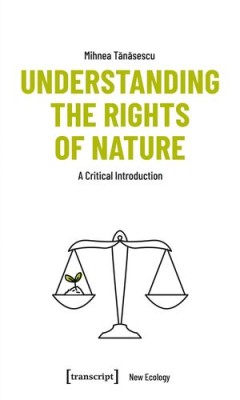
Understanding the Rights of Nature
Rivers, landscapes, whole territories: these are the latest entities environmental activists have fought hard to include in the relentless expansion of rights in our world. But what does it mean for a landscape to have rights? Why would anyone want to create such rights, and to what end? Is it a good idea, and does it come with risks? This book presents the logic behind giving nature rights and…
- Edition
- -
- ISBN/ISSN
- 9783839454312
- Collation
- -
- Series Title
- -
- Call Number
- -
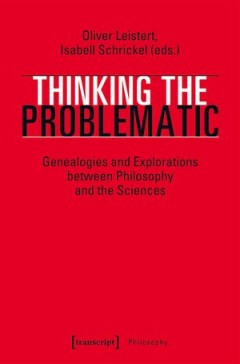
Thinking the Problematic
The notion of »the problematic« has changed its meaning within the history of power and knowledge since the early 20th century, leading up to today's performative, neocybernetic fascination with generalized management ideas and technocratic models of science. This book explores central scenes, conceptual elaborations, and practical affiliations of what historically has been called »the probl…
- Edition
- Edisi 1
- ISBN/ISSN
- 9783839446409
- Collation
- -
- Series Title
- -
- Call Number
- -
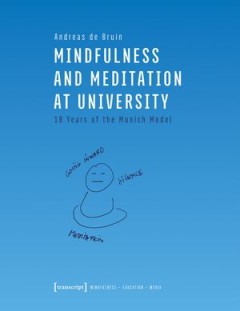
Mindfulness and Meditation at University
Why should mindfulness and meditation be taught at universities? What impact could the establishment of such programs have on students and on the education system itself? Andreas de Bruin showcases the remarkable results of the first ten years of the Munich Model »Mindfulness and Meditation in a University Context« - a program started in the year 2010 in which 2000 students have already parti…
- Edition
- Edisi 1
- ISBN/ISSN
- 9783839456965
- Collation
- -
- Series Title
- -
- Call Number
- -

Archiveren van Digitaal Academisch Erfgoed, een verslag als voorbeeld
- Edition
- Vol. 2.0
- ISBN/ISSN
- -
- Collation
- -
- Series Title
- -
- Call Number
- -
- Edition
- Vol. 2.0
- ISBN/ISSN
- -
- Collation
- -
- Series Title
- -
- Call Number
- -
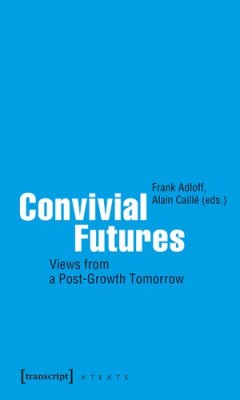
Convivial Futures
What steps are needed to make life better and more convivial? The Second Convivialist Manifesto (2020) has presented a short diagnosis of the current crises and sketches of a possible and desirable future. It has been a necessary work of theoretical synthesis, but preserving a viable world also requires passion. It is thus urgent to show what people would gain from a shift to a post-neoliberal …
- Edition
- -
- ISBN/ISSN
- 9783732856640
- Collation
- -
- Series Title
- -
- Call Number
- -

The Voices and Rooms of European Bioethics
This book reflects on the many contributions made in and to European bioethics to date, in various locations, and from various disciplinary perspectives. In so doing, the book advances understanding of the academic and social status of European bioethics as it is being supported and practiced by various disciplines such as philosophy, law, medicine, and the social sciences, applied to a wide ra…
- Edition
- Edisi 1
- ISBN/ISSN
- 9781317804574
- Collation
- -
- Series Title
- -
- Call Number
- -
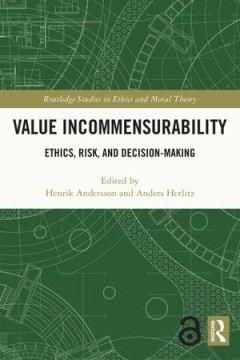
Value Incommensurability
Incommensurability is the impossibility to determine how two options relate to each other in terms of conventional comparative relations. This book features new research on incommensurability from philosophers who have shaped the field into what it is today, including John Broome, Ruth Chang and Wlodek Rabinowicz.The book covers four aspects relating to incommensurability. In the first part, th…
- Edition
- Edisi 1
- ISBN/ISSN
- 9781000526981
- Collation
- -
- Series Title
- -
- Call Number
- -
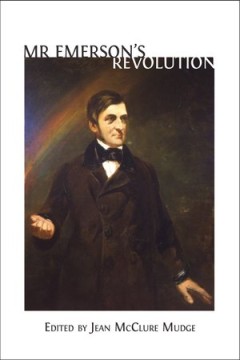
Mr. Emerson’s Revolution
This volume traces the life, thought and work of Ralph Waldo Emerson, a giant of American intellectual history, whose transforming ideas greatly strengthened the two leading reform issues of his day: abolition and women’s rights. A broad and deep, yet cautious revolutionary, he spoke about a spectrum of inner and outer realities—personal, philosophical, theological and cultural—all of whi…
- Edition
- -
- ISBN/ISSN
- 78–1-78374–099–4
- Collation
- -
- Series Title
- -
- Call Number
- 928 MIS
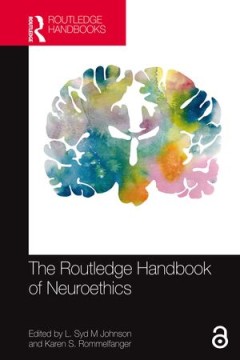
The Routledge Handbook of Neuroethics
The Routledge Handbook of Neuroethics offers the reader an informed view of how the brain sciences are being used to approach, understand, and reinvigorate traditional philosophical questions, as well as how those questions, with the grounding influence of neuroscience, are being revisited beyond clinical and research domains. It also examines how contemporary neuroscience research might ultima…
- Edition
- Edisi 1
- ISBN/ISSN
- 9781317483526
- Collation
- -
- Series Title
- -
- Call Number
- -

Mongameli Mabona : His Life and Work
Mongameli Anthony Mabona (1929) is a singular South African scholar with an exceptional life path. Yet, he is a wrongly forgotten figure today. British imperialism and apartheid shaped the world into which he was born and, to a large extent, these powers carved out his destiny for him. Nevertheless, a curious set of coincidences enabled him to obtain a tertiary education as a priest, to pursue …
- Edition
- -
- ISBN/ISSN
- 9789461663610
- Collation
- -
- Series Title
- -
- Call Number
- 923.7 WOL m
 Computer Science, Information & General Works
Computer Science, Information & General Works  Philosophy & Psychology
Philosophy & Psychology  Religion
Religion  Social Sciences
Social Sciences  Language
Language  Pure Science
Pure Science  Applied Sciences
Applied Sciences  Art & Recreation
Art & Recreation  Literature
Literature  History & Geography
History & Geography